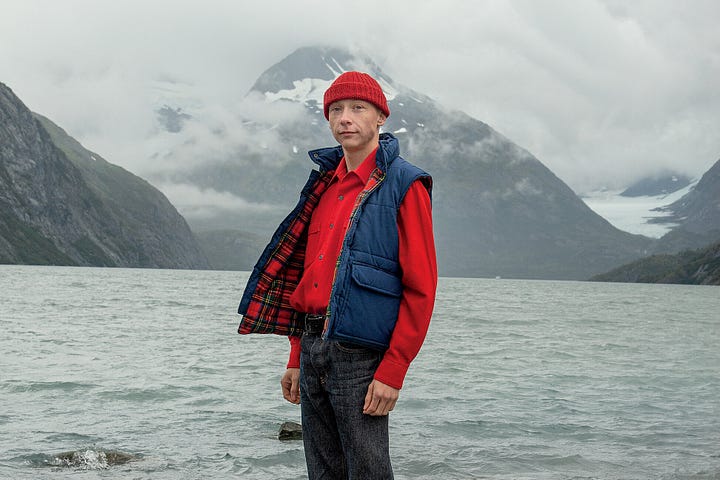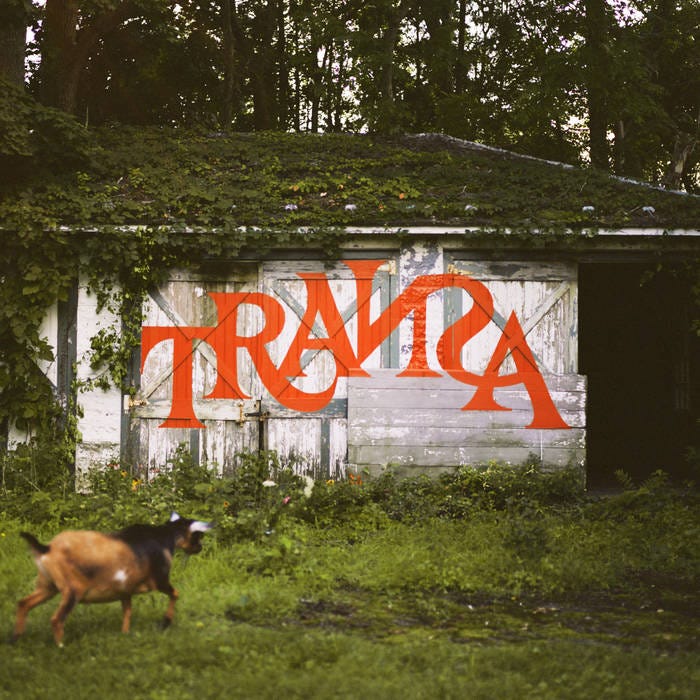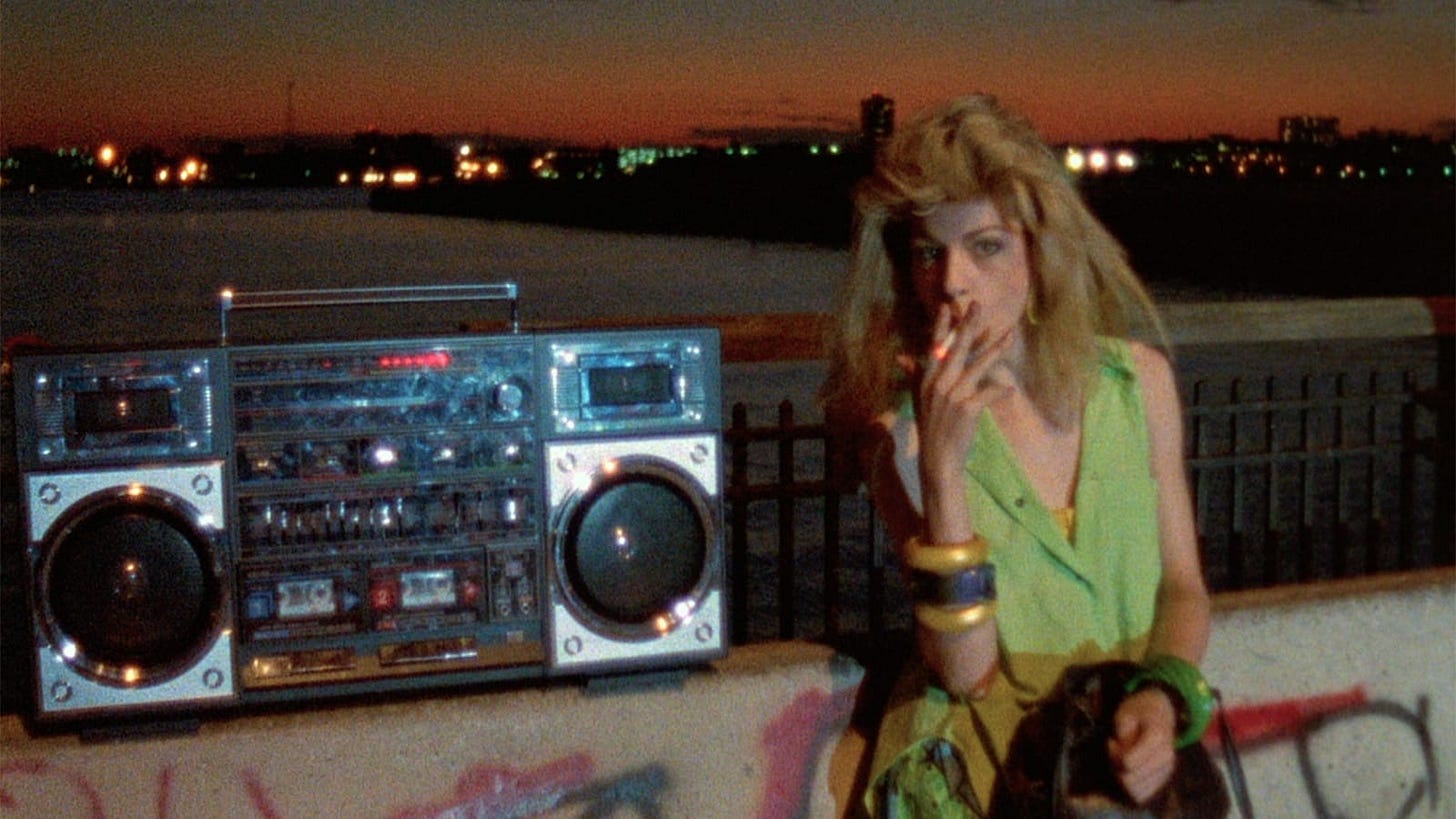Highly Relevant Trans & Queer Cover of A 90's Indie Classic
Trans Migration & "Get Me Away from Here I'm Dying" by Julien Baker, Calvin Lauber, SOAK, & Quinn Christopherson
This is the second installment of my weekly series of Friday music shares, which will initially be song selections from the TRANSA compilation.
TRANSA (stylized as TRAИƧA) is a project presented by activist and musical non-profit Red Hot Organization and produced by Massima Bell and Dust Reid. In short, this is a musical celebration of transness and what trans people offer the world. In the words of the TRANSA team, this album is "a spiritual journey across 8 chapters and 46 songs, spotlighting the gifts of many of the most daring, imaginative trans and nonbinary artists working today. It softens the edges of the world we know, and invokes powerful dreams of the futures that might one day thunder from its cracks." For Massima and Dust, the word transa means "to love without limits" and "you are more than you know."
The album features collaborations from 100 artists across genres and the spectrums of gender and transness/cisness, from icons and well-known musicians like Sade, Sam Smith, Laura Jane Grace, Moses Sumney, Allison Russell, Perfume Genius, and Beverly Glenn-Copeland to more obscure but equally visionary creators. It also includes multiple spoken word poems (by poets such as Eileen Myles, Marsha P. Johnson, and Nsámbu Za Suékama) set to music.
The chapters of TRANSA follow the journey trans people make as individuals and as a collective: Womb of the Soul, Survival, Dark Night, Awakening, Grief, Acceptance, Liberation, and Reinvention. You can read more about how TRANSA has been a source of radical hope for me here. And check out the full tracklist and order details here.
Today I want to share with y’all one of my personal favorites from the album, a cover of Belle & Sebastian’s 1996 indie classic, “Get Me Away from Here I’m Dying.” While the title of the song is heavy, the music in the original is written and performed to be quite whimsical and upbeat. The cover was adapted and performed by Julien Baker, along with producer Calvin Lauber, Northern Irish artist SOAK, and Alaskan singer-songwriter Quinn Christopherson. In an interview with Pitchfork, Calvin Lauber explained that the artists worked collaboratively to make their version more dynamic and dense, with a sound inspired by Interpol and 80’s new wave. In this version, the lyrics (not rewritten but transformed by the different musical arrangement) have more gravity and feel less tongue-in-cheek compared to the Belle & Sebastian version, which has an air of self-mockery.
“Get Me Away from Here I’m Dying” is an apt title for a song being shared this week, as trans people all around me are evaluating whether they need to relocate in order live the lives they want to live. Quinn Christopherson, SOAK, and Julien Baker are queer and/or trans musicians,1 and the song is placed in the middle of the Survival chapter. This context - in addition to the changes in the musical arrangement - provides a lens for understanding the cover version as a more earnest and heavy reflection on the constraints and damage of a transphobic/cisnormative society, the yearning for escape that many trans folks feel and act upon, and the role of art/music in facilitating that liberation/escape and self-actualization.




Migration is a central theme in trans history, with relocation motivated by both desire and necessity. I am reminded of Lou Sullivan, the gay trans man who left Wisconsin in 1975 to live in San Francisco, where he could receive gender-affirming medical care, be more connected to other trans people, and be a part of gay male spaces and community. So many trans people have moved to urban centers to join trans communities after facing rejection and non-affirmation in their families and communities of origins. In The Stroll, a documentary about survival sex work and the trans community in 1980s and 1990s Manhattan, and the ballroom documentary Paris is Burning, we learn the stories of trans women of color who relocated to New York City where they could build chosen families. And of course there is the fictionalized depiction of this in the series Pose. For others, migration is about a chance to start fresh and be known only in your affirmed gender. A couple years ago, I met a young closeted trans woman in Louisiana saving up to move to a new city with more protections where she could “begin life as a woman.” And though it ended with tragedy, Brandon Teena’s life involved migration - moving from one small Nebraska town to another, where no one knew him so he could be accepted as a man.
Sometimes, trans migration can be exciting and beautiful - shedding the oppression of a culture in which we didn’t fit, or the legacies of the parts of life lived in a different gender presentation and projections of people who “knew us before.” It can feel triumphant and freeing. I hear this musically in Quinn Christopherson’s verse in particular, especially when the music crescendos as he sings “I just thought I’d let you know - goodbye.”
But often, there is grief and struggle in what we’re leaving behind or the reduced autonomy in a survival-based relocation decision. Since certain states began restricting trans youth’s access to care and making it less safe to be trans, families and individuals have been forced to leave their homes and start new somewhere else. While the U.S. immigration system has never adequately met the needs of asylum seekers or treated refugees (especially trans refugees) with the respect and compassion they deserve, our country has historically been a place where trans folks from more hostile parts of the world have sought refuge. Now, we have trans refugees from U.S. states. And since Trump was elected, and particularly since he has opened his term with an onslaught of policies targeting trans people’s safety, rights, and access to care, some trans people are seeking refuge in other countries or working on contingency plans to emigrate when necessary. While I don’t anticipate a huge exodus out of the country, I do think the coming years will see many trans people leaving their cultures and established communities to live in states with greater legal protections, care, visible community, and safety.
This truth has been heavy on my mind and spirit this week, as many clients and community members mourn what they have lost and what they could lose in this process. This song (the TRANSA version) captures both the melancholy and hopefulness - indeed survival, of necessary migration. And so I share it with all of you.
(I do not know about Calvin Lauber’s gender or sexuality or relationship to queer/trans communities.)






